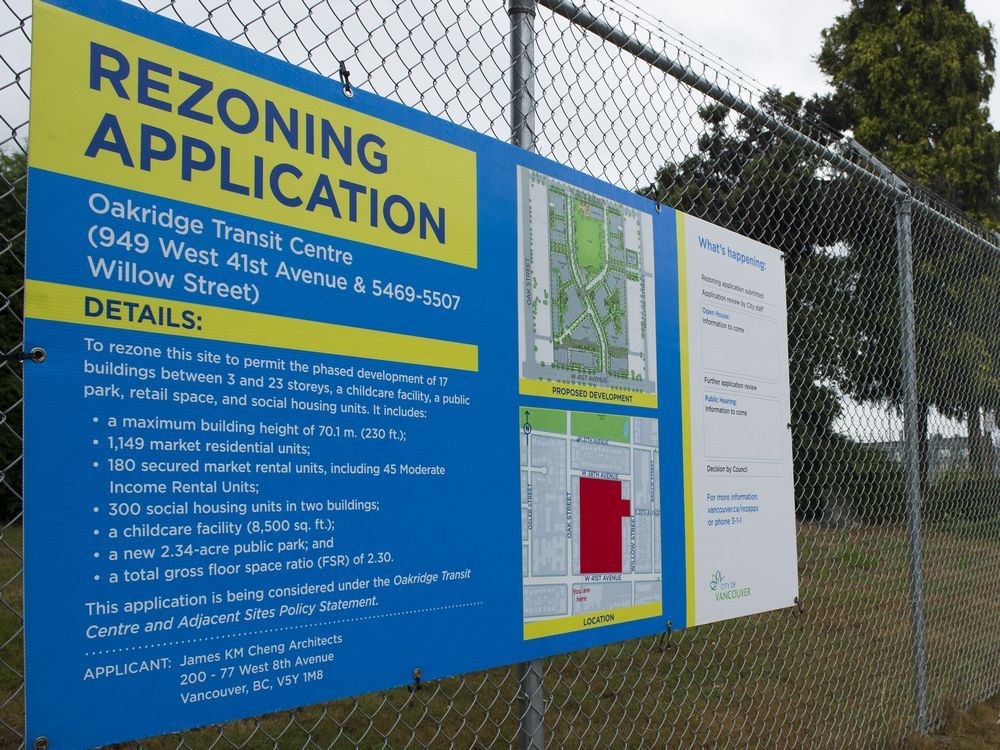Dan Fumano: Landowners fight B.C.'s 'additional school tax' on property under development

Credit to Author: Dan Fumano| Date: Fri, 13 Sep 2019 02:10:30 +0000
Dozens of B.C.’s largest landowners and developers are challenging the imposition of the province’s new “additional school tax” on residential land under development.
Appeals have been filed for hundreds of parcels of land in various stages of development, with a combined assessed value in the billions, to the B.C. Property Assessment Appeal Board, property tax agent Paul Sullivan said Thursday.
“That is extremely abnormal,” said Sullivan, whose firm Burgess Cawley Sullivan & Associates is representing more than 100 property assessment appeals involving the new additional school tax. “We do not normally have significant amounts of properties under appeal on a common issue, but we do this year.”
The additional school tax, announced last year by the B.C. NDP government, applies to residential properties valued at more than $3 million. It adds an extra 0.2 per cent on the residential portion assessed between $3 million and $4 million, and 0.4 per cent on the residential portion assessed over $4 million.
The surcharge applies to houses and condos valued at more than $3 million and also to most vacant land classified as residential. For a large property awaiting a major development, that could mean an extra six- or seven-figure annual tax bill. That applies equally to future condo developments and market rental projects.
Once building construction begins on a larger development property like a condo project, it’s exempted from the additional school tax.
The “nub of the matter” for the hundreds of properties currently under appeal, Sullivan says, is that the way B.C. Assessment is interpreting the legislation for the additional school tax. They classify large-scale development properties as vacant until actual building construction is underway.
That means the new additional school tax on properties over $3 million is being applied on development land during the pre-construction phase, including demolition, remediation, and while waiting for municipal zoning and permits.
The time to get a building permit varies widely by municipality and depending on the individual project, Sullivan said. But in some cases, that process can take years before the first shovels are in the ground. And those delays are mostly outside of the developers’ control. The City of Vancouver, for example, has worked recently to reduce permitting delays, but the backlog has long been identified as a serious problem.
For the speculation and vacancy tax, another new provincial tax that applies to vacant development land, the wording is different. There residential properties are exempt during any phase of development, including permitting, Sullivan said.
Sullivan argues B.C. Assessment has misinterpreted the provincial government’s legislation, and says this will serve to drive up the cost of housing for both future homebuyers and renters.
“Surely a government that’s talking about affordability could not have intended for these to be applied to development land which is active?” Sullivan said. “Why would we want to impose this high level of tax on development land that’s going through a government-imposed process, causing millions of dollars in additional costs, increasing the costs of homes for people? Surely they didn’t mean to do that.”
One Vancouver development property Sullivan’s firm has under appeal is the former Oakridge Transit Centre on West 41st Avenue, a 5.6-hectare site Modern Green Canada is now trying to develop a community mixing condos, rental apartments and social housing. Assessed at $375 million, the provincial government’s online tax calculator says the site would be subject to $1.48 million in additional school tax for this year.
Paul Sullivan, a property tax expert, is pictured in Vancouver.
In an emailed statement, B.C. Assessment spokesman Tim Morrison said: “Our policy is to not comment publicly on active assessment appeals out of respect for the assessment appeal process.”
Property Assessment Appeal Board records show 407 appeals are in status “appeal management in progress” in the Vancouver-Sea-to-Sky region alone, with more than 1,200 across the province. Appeal Board members are appointed by the provincial government and independent from B.C. Assessment.
The appeals were all filed before the April 30 deadline. Since then, Sullivan’s office has been negotiating with B.C. Assessment, he said, but those negotiations have “failed” to produce the appellants’ desired outcome.
That’s why Sullivan’s clients have now decided to cut off negotiations, he said, and on Thursday, the first of the appellants officially requested a hearing before the Property Assessment Appeal Board to adjudicate the matter. Sullivan expects the hearing could be as early as November, but may not be until the new year.
Whichever side eventually loses at the Property Assessment Appeal Board is likely to appeal to the B.C. Supreme Court, Sullivan said, and then, potentially, to the B.C. Court of Appeal.
He expects the litigation could continue for years.